Finding ants in your compost bin can be extremely frustrating. In general, it is not always bad news since those creatures can be beneficial to the process of composting. In fact, they will bring fungi into your compost heap and can enrich it with phosphorus and potassium. However, you don’t want ants to overrun the material in your compost tumbler or worm composter as well.
Therefore, you should tolerate ants and allow them to help mix your compost, but you should take care to keep their number under control. When ants become an issue, you need to find a way to get rid of these little menaces. Let’s learn more about ants, find out the best way to keep their population under control, and to avoid their appearance in your compost heap.
More about Ants
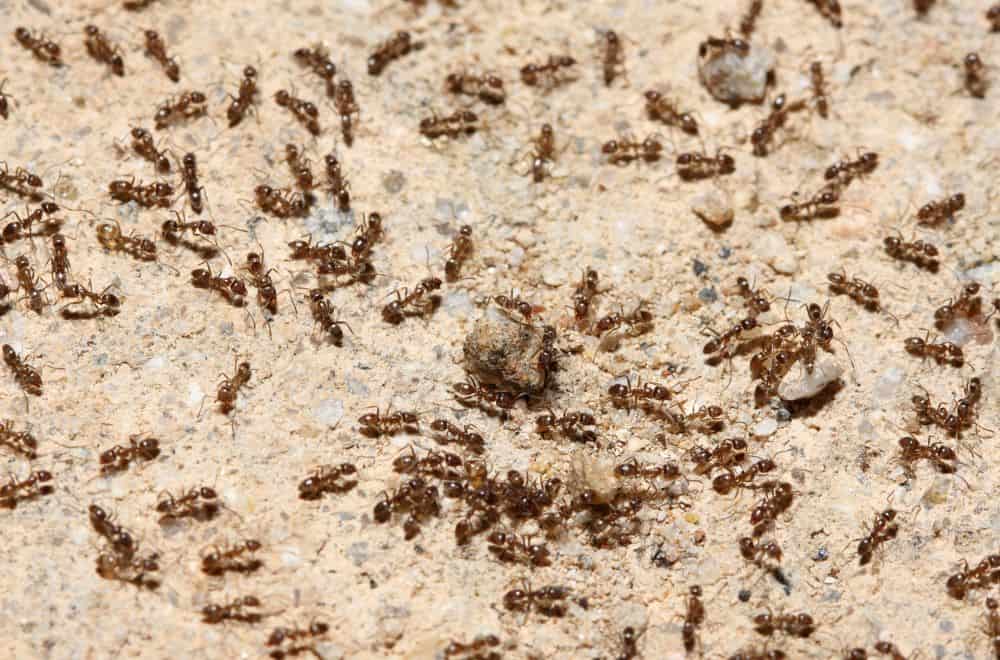
Ants are pretty weird creatures. They can eat a lot of things (they are omnivorous), but they can be very picky too. Usually, most species ‘decide’ to use a particular type of food, and you can see those that eat only fats and meats, while other species pick out seeds and leaves. In some cases, they eat literally everything.
If you don’t mind the ants stealing some food from your worm composter, you can simply ignore them and let them live. It is an excellent solution except you have those ant species which attack the worms themselves. They will devastate the worm population eventually.
I will give you a list of the predatory ants you should keep on the eye:
- Army ants
This nomadic type of ants can overwhelm your worms in large numbers.
- Carpenter ants
This type of ants look for wood to build their nests. You can expect them to eat different foods, including your worms.
- Red fire ants
This type of ants feed mostly on plants. However, they can eat worms as well. Be careful since their sting is exceptionally painful.
|
Beneficial micro-organisms living in your compost pile |
|
| Ants | They help the process of composting by bringing fungi into their nests. Also, they move phosphorus and potassium around and enrich compost at the same time |
| Beetles | Depending on their species and development stage, they eat fungal spores, decaying vegetables, snails, and slugs |
| Centipedes | These third-level consumers eat soil invertebrates, including insects, and clean your heap of these unwanted creatures |
| Flies | These insects feed on organic material and carry bacteria all around the compost pile |
| Millipedes | By eating soft, decaying vegetation, they help with breaking down plant material |
| Snails and slugs | They eat living plant material as well as plant debris. Take care to move them from finished compost before spreading it to avoid damaging your garden |
| Sow bugs | As first-level consumers, those bugs feed on rotting vegetation and woody materials |
| Spiders | These third-level consumers eat insects and small invertebrates and can help in garden pests control |
| Springtails | Those small insects eat fungi and molds, but can also chew on decomposing plants |
| Worms | They ingest organic matter from the worm composter thanks to intestinal juices rich in ferments, enzymes, and hormones. They make the breakdown process quick, contribute to its quality, and leave fertile castings rich in plant nutrients behind |
Ants Are Beneficial Creatures
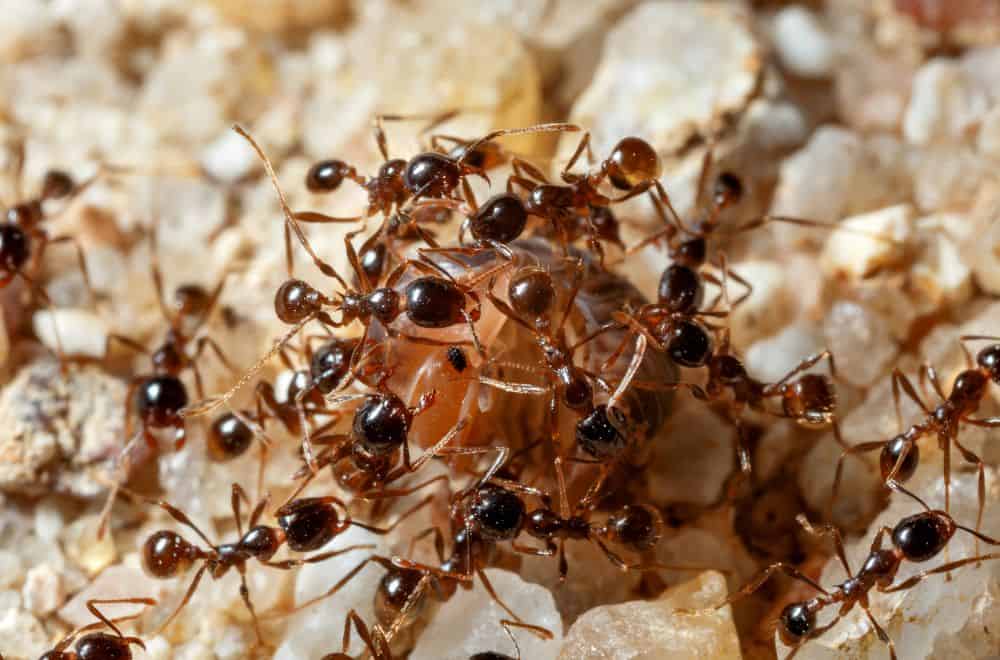
There are approximately 1,000 ant species in the US, but just a few of them are considered as pests. Luckily, most other ant species can be highly beneficial for the process of decomposition in the compost pile.
They are micro-organisms which can break down most fruit and vegetable scraps, and speed the process of composting by helping microorganisms to do their job in a pile.
You should think twice before deciding to kill them as every other pest. Let’s see all the benefits you can get from ants:
- Ants shred waste
Ants have a balanced diet and chew, grind, and tear the waste while eating. They target materials such as weed seeds, fungi, plant scraps, sweets, and other insects in your compost pile, shred those ingredients, and facilitate the work of the microbes at the same time.
Also, they clear passageways throughout the pile and break down the green and brown materials while moving around. Thanks to that, microbes get smaller pieces of scraps and deal with them quicker.
|
Ant species in the US which are considered as pests |
|
| Argentine ants | They prefer sweet foods, meat, damaged fruit, and cereals |
| Black house ants | They are attracted to sweets, but can also spread salmonella by living in garbage and dog excrement |
| Carpenter ants | They prefer moist places and like eating sweets, meat, and grease |
| Fire ants | These agricultural and urban pests eat dead insects, earthworms, and destroy crops |
| Harvester ants | They feed on grass’ seeds |
| Odorous house ants | They eat sugar and dead insects |
| Pharaoh’s ants | They choose humid conditions and feed on dead insects, meat, blood, and fats |
| Sugar ants | They prefer high moisture and eat sweets, honey, maple syrup, and nectar |
| Thief ants | They feed on bread, sweets, meat, fats, dairy products, fruits, nuts, as well as insects and seeds |
- Ants mix waste
You can look at ants as natural compost food processors. While moving inside the pile, they carry the content (both brown and green material) from the outside to inside of your compost heap. That way, they help you with mixing the pile and prevent drying of the content on its perimeter.
Plus, ants burrow through the content, move fungi and bacteria to their nests, and help to spread basic elements such as phosphorus and potassium throughout the heap.
- Ants create aeration
By digging hundreds of tunnels throughout compost pile, ants help in aeration of the material, and consequently, they help the process of composting.
- Ants eat other insects, including harmful ones
Believe it or not, the presence of ants in your compost bin will reduce the number of many harmful insects and worms there. Most of them will become food for ants. That way, ants will help you get rid of these horrible creatures.
- Ants add fertilizer
While eating waste from your kitchen and garden, ants create their own waste and add it into the compost pile. Bacteria digest ant’s excrement and create additional nutrients into your compost bin. Basically, you will get ant waste which will enrich your compost.
Reasons for the Appearance of Ants in Your Compost Pile
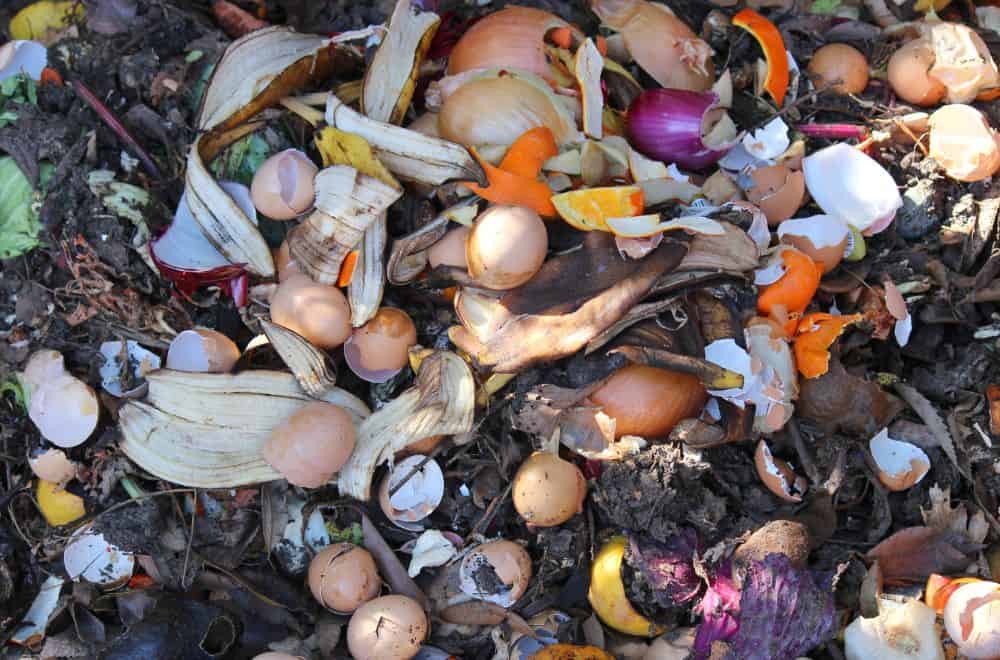
The first thing you should check when noticing ants in your compost bin is the level of humidity. When the content of the container becomes too dry or contains more brown materials than recommended, you can expect to find ants all around.
In general, when the level of moisture is correct, and the ratio of green to brown material you put to your heap is satisfactory, you won’t spot ants there. Experts recommend adding approximately two parts of green to one part of brown ingredients.
Keep in mind that ants don’t want to live and nest in an active, well-balanced heap. Once they come, and you decide that there are too many of them, you should find a way to destroy their colony.
Just take care to repeat the treatment since their queen can survive for fifteen years, and one settlement can consist of more than 300 ants. You can destroy them only after killing the queen. Her death means dying out the whole colony.
How to Control Ants in Your Compost Pile
1. Bury your food
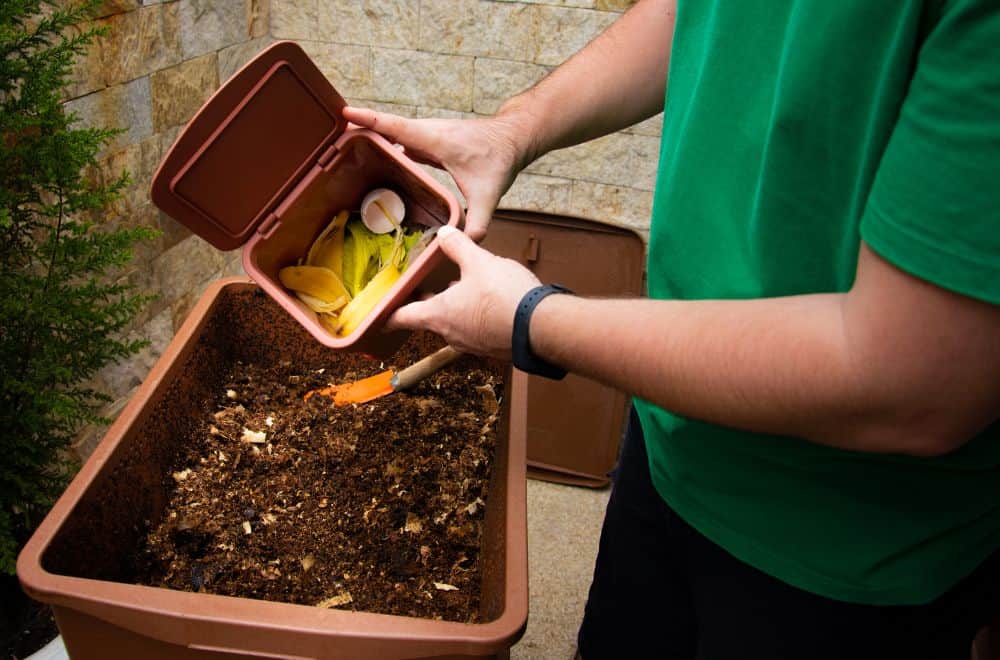
Since ants are attracted to food, they will come to your pile if you simply dump food scraps onto it. The effecting way to avoid this is to mix up and bury new food materials you add daily on the heap.
If you use a compost bin or compost tumbler, you can place sticky traps such as double-sided tapes around their rims to catch these menaces before they enter.
2. Raise the moisture level
In general, ants don’t want to tolerate a high level of humidity. If your pile is too dry, it will be an excellent place for ants to come in. Otherwise, when the heap is wet, they will avoid spending time in a moist area. Just turn material regularly and add some water if it begins to become dry.
The secret is to keep the compost moist, but not too wet or too dry. When the weather is sweltering, you should sprinkle the material with water once a week to keep it adequately humid.
3. Keep the pile warm
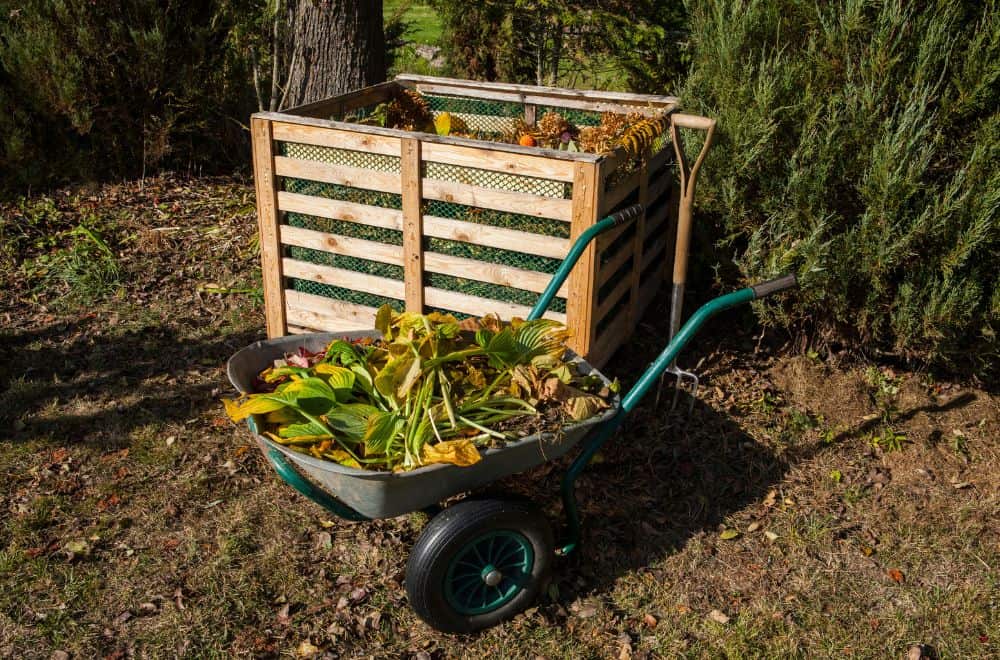
Ants really like cold places. Therefore, the excellent way to chase them away is to heat your compost pile. Keep the temperature of the heap above 140 F (60 C), and ants will avoid it. For that purpose, you can use plastic to cover your compost and keep the material warm.
4. Keep the pile smells nice
You have already recognized the smell of your heap. That natural odor of decomposing is pretty specific, and you will notice if the content starts to stink. Cover your pile with manure, fall leaves, eggshells, or wood ash, which will enrich your pile, make it healthier, and improve the smell. All of that will discourage ants and keep them away from your decomposing material.
5. Turn the pile regularly
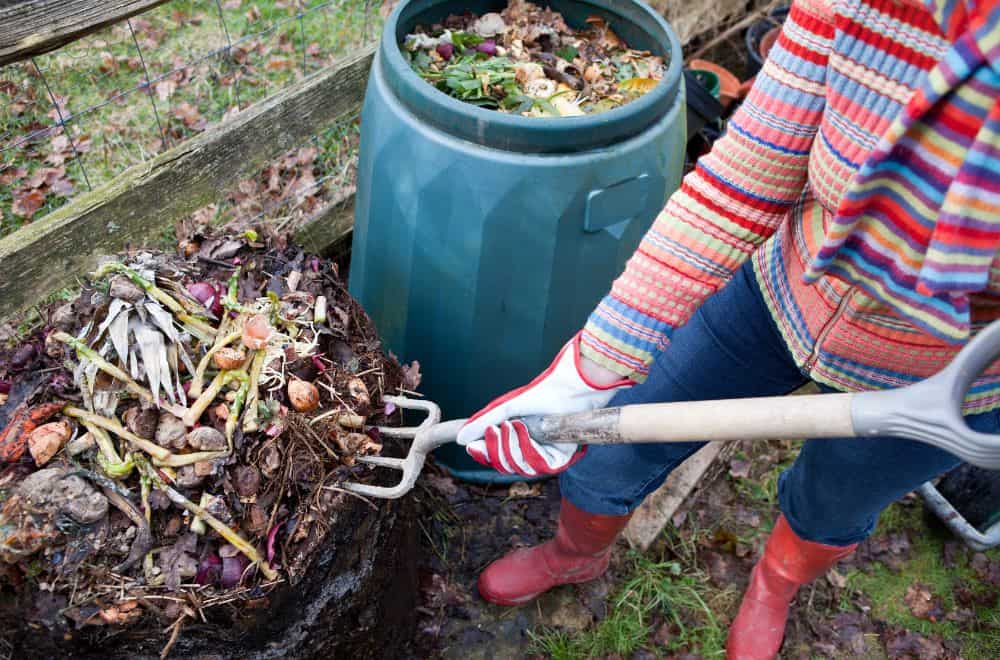
As you have already seen, the main thing is to turn your material regularly. If you keep rotating the heap at least once or twice a week, ants won’t form colonies inside it. Just keep turning the pile, and you will prevent infestation.
6. Destroy ants after they appear in your pile
There are numerous ways to kill ants if you don’t want them inside your heap or want to decrease their number there. I will give you a few excellent ideas on how to do that.
- Cold water– You can douse the nest with water. Just keep in mind that it needs to be cold. If using boiling water, you will destroy some valuable ingredients from your compost pile at the same time.
- Cornmeal– Sprinkle it around the compost heap and wait for ants to eat it. Since they can’t digest this meal, the swollen grain inside their bodies will kill them.
- Coffee grounds– It seems that a large amount of coffee grounds rejects ants from the compost pile.
- Boric acid– This acid is toxic to ants. Make a bait by mixing it with sugar, and let ants bring that chemical back to their nest. After a while, it will destroy the whole colony.
- Oil and kerosene– An oil-based treatment can be a highly effective way to get rid of ants. Spread oil or kerosene over the top of the pile, and wait until it causes their dehydration and death. Keep in mind that orange oil can discourage worms. Avoid it.
- Crushed limestone– Excessive amounts of fresh food will probably increase the acidity of your pile, which is a perfect environment for ants. Sprinkle crushed limestone over the top of the heap to balance the PH levels when your bedding becomes too acidic, and ants will try to avoid it.
- Natural pest control with parasitic nematodes – By attracting natural predators, you can control the number of ants in your compost pile. Since these nematodes attack ants, their applying to the heap in late spring will help you to get rid of these annoying creatures. They are an ideal option for deterring ants from forming nests and killing them.
- Diatomaceous earth– After the sharp particles from diatomaceous earth pierce through a waxy outer layer from the surface of ants’ bodies, the internal water balance inside their bodies will be disrupted. As a result, ants will dehydrate and die.
- Chemicals– I don’t recommend this type of protection the heap because you will transfer insecticide you use to your garden or lawn when decide to spread compost throughout them. If you believe that you have no other choice, pick out the best one you can find on the market.
- Pyrethrum insecticide– This insecticide is the most effective way to kill the existing ants in your heap. Just spray it around the outside of your worm beds, but take care to protect your worms by keeping insecticide away from the bedding itself.
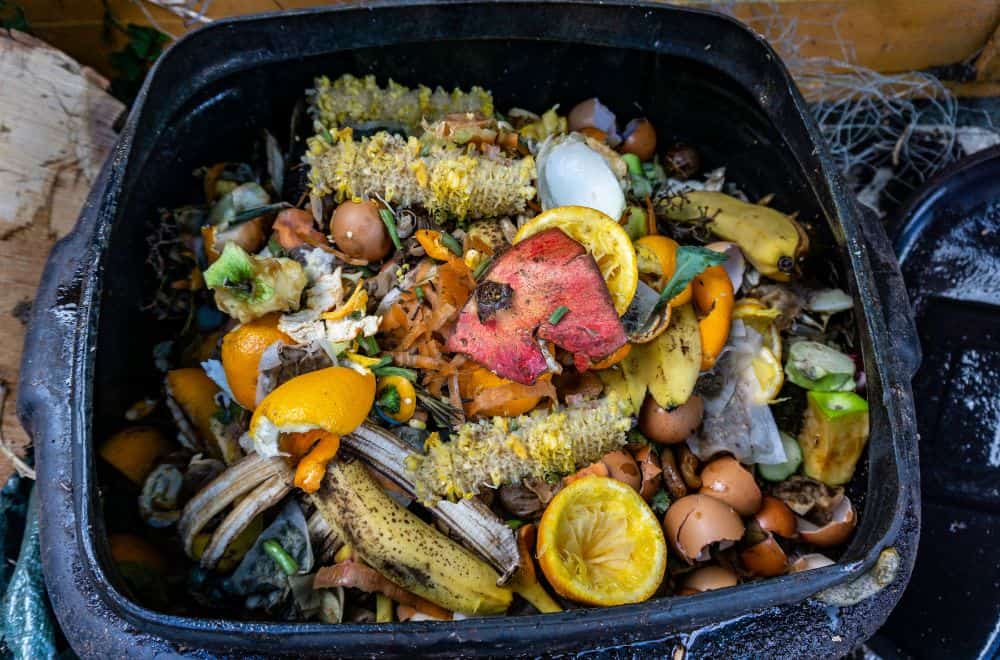
Leave a comment